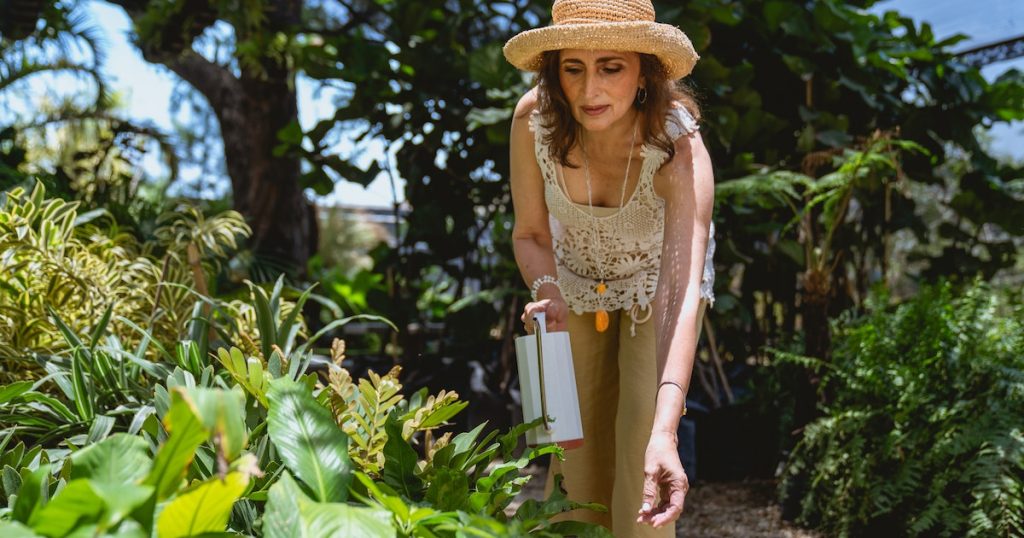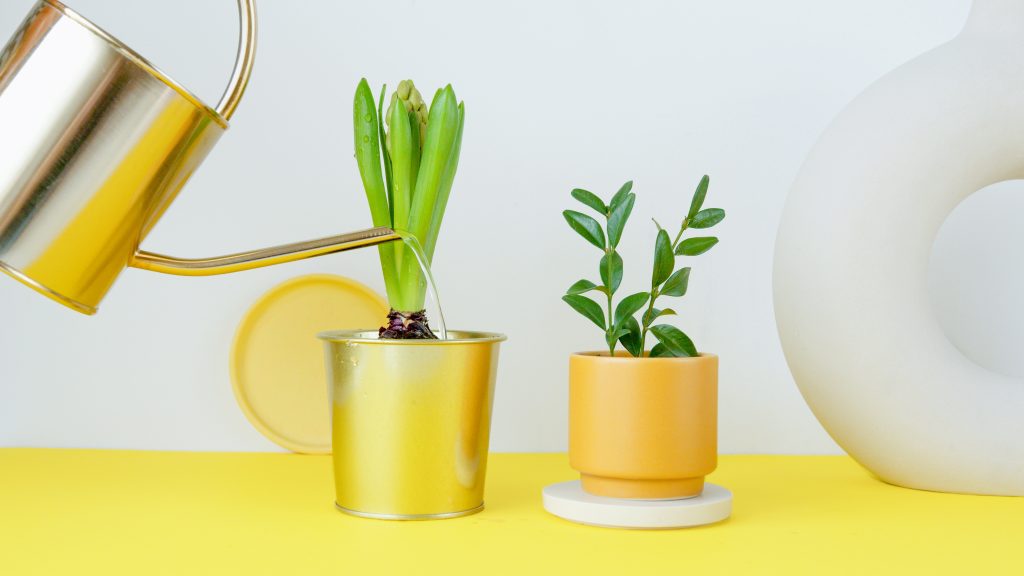With the increasing shortage of water in today’s world, fresh water is not as accessible as it should be. So we all look toward reusable but safe water alternatives instead of fresh water for errands that don’t necessarily require fresh water, such as watering your plants. Bath water is a common alternative to fresh water. However, it also makes us wonder if it is safe for our plants.
Bath water, also considered under the term ‘grey water,’ is considered generally safe for your plants if used correctly. However, its quality varies and may contain pollutants such as soap and detergent. Fortunately, soil and potting composts filter them out well, and the leftovers can occasionally work as a moderate fertilizer.
If you want to keep your plants’ growth healthy and nutritious with sustainable use of water, using bath water is a great option. Through this article, you will find out if the bath water is safe for your plants and how to use it correctly.

Table of Contents
Can You Water Plants with Bathwater
Water from showers, baths, kitchens, washing machines, and other non-toilet locations may all be used to water plants. This is referred to as ‘grey water.’ If recycled or “grey” water is utilized with caution, it can be helpful in times of water scarcity.
Some individuals utilize grey water to save water. After you’ve finished showering, gathering the wasted water and using it to water your plants in the yard can be a sustainable practice. It conserves water, particularly drinking water.
Can You Use Soapy Bath Water to Water Plants
Although using bath water to water your plants can be quite sustainable, it also leads to the question of whether the soap in the bath water can be harmful to your plants. The truth is that bath water is very safe to use.
Pouring water directly on leaves, on the other hand, may result in leaf burn depending on the type and amount of soap and shampoo used. You should water only around the base of your plants.
Plants will not be affected by the trace amounts of soap contained in bath water. However, do not use bath water on any edible plants since bath water may contain hazardous germs that you do not want to consume.
One more thing you should be careful of is that the grey water should be stored for no more than a day to prevent bacterial development unless it is filtered through by a professionally built system. It should be administered using a watering can since oil and fibers can block the drainage system.
The chemicals in soapy water vary greatly depending on the type of soap you use. Industrial pesticidal soap is the safest option since it is designed precisely to manage pests while causing minimal damage to plants.

Note that certain plants may be harmed by additions to your bath water such as perfumes, dyes, and moisturizers. Before using such home soaps, test a tiny section of the plant with the diluted combination and wait a few days to see whether there is any harm.
Bath water definitely can be a good, safe, and sustainable alternative to fresh water; however, you should make sure that you do not use it for a prolonged period as an excess of everything is bad. If plants are irrigated solely with grey water during a prolonged dry spell, dissolved contaminants may accumulate in the soil, preventing plants from developing properly.
When there is a rain shower or if you alternate watering with saved rainwater, they will drain from the soil.
Soapy Water Can Be Beneficial for Your Plants
Soapy water with the right dosage is not only safe for watering your plants, but it can also add more benefits in the process. It kills tiny, soft-bodied insects, including mites, fleas, white bugs, psyllids, and floury bugs, which can be harmful to your plants.
Soap kills insects by breaking their cell membranes and may also dissolve their protective waxy covering, causing their bodies to dry. However, it kills insects only when applied directly to their bodies.
To do so, you should spray the undersides of leaves, where pests frequently gather. To control and prevent any new insects from future visits or hatchlings, repeat the spray every 4-7 days.
How to Use Bath Water to Water Your Plants
Before watering your plants, you should apply a layer of mulch to the soil surface wherever you intend to utilize bathwater. Mulch preserves the moisture content in the soil, and it can act as a filter to catch impurities in your bathwater. It also aids in the breakdown of poisons or contaminants.
Alternatively, you can use the following video, which breaks down the steps for your ease:
Next, you should determine the amount of bath water that can be used. To do so, first measure the length and breadth of your garden and, find the area, divide this area by 2. This is the estimated amount of wasted bathwater that you may use without damaging your plants.
Now, pour the water from your bathtub into a bucket or other big container. As we mentioned, make sure that you do not store the bath water for longer than a day. Proceed to water your plants with the spent bathwater, taking care that you do not exceed the recommended amount. Avoid getting water on the plant’s leaves or stems by applying it to their bases only.
Bathwater should be used on mature plants rather than on edible plants such as vegetables or saplings.
For the next few days, water your plants with fresh water from the taps or spouts. This aids in the diluting and flushing out of any toxins or contaminants that may have been present in the used bathwater.
Conclusion
Using bath water to water your plants can be safe if you use it in the right amount with the right plants. Through our article, you can determine whether you can use soapy bath water to water your plants safely and how to do so.
Recent Posts
Have you found yourself wondering, 'why is my bamboo growing so slow?' Despite the fact that bamboo plants are remarkably fast-growing, it can sometimes take months (or even years!) to see any signs...
Miracle-Gro is a huge help when you are trying to get decent yields out of your plants or if you want them to thrive. However, you may have noticed that a single dose of fertilizer does little to...
